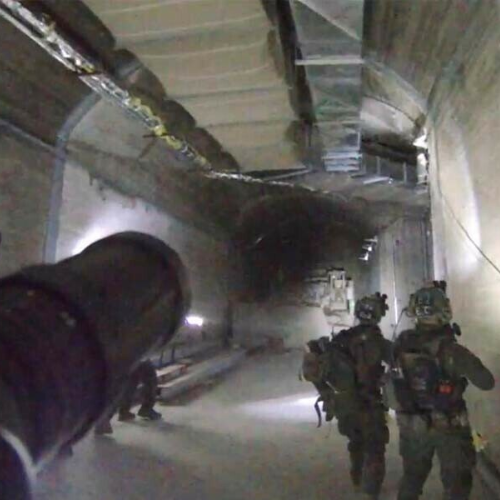On September 8, 2024, Israel carried out one of its most audacious military operations in recent history. A team of 120 elite soldiers from Israel’s special forces units, Shaldag and Unit 669, launched a daring attack on a heavily protected underground missile facility deep in the mountains of Syria. This facility, located in Masyaf, west of the city of Hama, was one of Iran’s most important projects in Syria. Iran had designed it to secretly produce missiles that would be given to Hezbollah, a militant group in Lebanon. These missiles were meant to challenge Israel’s security and defense systems.
The mission was codenamed “Deep Layer,” and it was kept a tightly guarded secret. The underground facility, buried 70 meters beneath the ground, was one of Iran’s flagship projects. The purpose of the mission was clear: Israel needed to destroy the facility before the missiles could be used against them.
The Highly Dangerous Operation
The Israeli commandos knew the operation would be a tough one. The missile facility was buried deep inside a mountain, heavily guarded, and equipped with high-tech security. The facility was also located in an area where Syria, along with Iranian forces, had strong defenses. But Israel’s military planners had prepared for this moment for a long time.
Spy Scandal: 12 Espionage Rings Linked to Iran Dismantled in Israel
The Israeli special forces team began their journey at night. They took off in helicopters and flew low over the Mediterranean Sea to avoid detection by Syrian radar. At the same time, Israeli fighter jets carried out diversionary airstrikes in Syria, drawing attention away from the commandos’ true target. These diversionary strikes helped confuse the Syrian military’s air defenses.
Once the special forces team arrived at the site, they faced another challenge: breaking into the underground facility. To do this, they found a surprising solution. Forklifts were parked near the entrance of the facility, and the commandos used them to open the heavy, locked doors leading into the mountain base. This clever tactic helped them quickly gain access to the site without alerting the defenders.
Inside the facility, the commandos had a clear mission: destroy key equipment that would have helped Iran build missiles. They planted explosives on important pieces of equipment, including rocket fuel mixers and missile assembly lines. After carefully setting the explosives, they prepared to evacuate the facility.
The Blast and the Aftermath
After two and a half hours inside, the team activated the explosives. The result was a massive underground explosion, equivalent to one ton of explosives. The blast was so powerful that it shook the ground around it, leaving the facility in ruins. The destruction was devastating for the Iranian-backed forces, as the facility was one of their most important sites in Syria.
Yoav Gallant Resigns from Israeli Parliament Amid Political Turmoil
The Israeli commandos then quickly evacuated the area and returned to their helicopters without losing a single soldier. However, the IDF (Israel Defense Forces) believes that around 30 Syrian soldiers and guards who were stationed at the site were killed in the blast. The attack was a huge success for Israel, as it destroyed a major part of Iran’s plan to supply missiles to Hezbollah.
In addition to the destruction, Israeli forces managed to gather valuable intelligence during the mission. This information confirmed that the facility was very close to becoming fully operational. The intelligence showed that Iran was ready to start producing missiles at a high rate, with plans to produce up to 300 missiles per year, ranging from long-range to short-range weapons.
This operation was a significant blow to Iran’s ambitions in the region. It stopped a key facility that could have changed the balance of power in the Middle East.
The mission, while highly successful, left the site abandoned after the fall of the Assad regime in Syria. Since then, Iran has withdrawn from Syria, leaving the facility unused. The operation showed the effectiveness of Israel’s special forces and their ability to strike high-value targets deep inside enemy territory.


